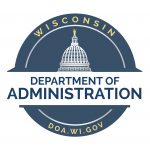DHS Announces New Accountability Measures for Medicaid Providers to Ensure Families Receive Critical, Effective Post-Birth Care Services
Changes to child care coordination benefit will increase provider accountability and prevent fraud to help promote positive health outcomes for mothers and children
The Wisconsin Department of Health Services (DHS) is announcing new accountability measures aimed at preventing fraud and improving health outcomes for child care coordination, a Medicaid post-birth benefit created under state law to address health disparities in southeastern Wisconsin. Child care coordination and prenatal care coordination (PNCC) provide prenatal and post-birth services to support vulnerable families at high risk of a negative health outcome—a critical program designed to improve infant and maternal health and reduce infant and maternal mortality.
DHS is taking several actions announced today to provide additional education and training to providers and increase billing reviews to identify and investigate incidents of fraud, including:
- Conducting a comprehensive review of all enrolled providers currently certified to offer these services.
- Providing additional education to providers about what services are allowable under the benefit.
- Implementing a 100% payment integrity review for all child care coordination claims.
- Eliminating automatic certification for new PNCC agencies to provide child care coordination benefits while DHS fully reviews the child care coordination benefit to ensure it is addressing maternal and child health disparities in southeastern Wisconsin.
- Requesting authority from CMS to only enroll new PNCC providers who do not have major indicators of fraud and who will only provide PNCC services.
“Wisconsin’s disparities in maternal and infant health outcomes are preventable and unjust. The child care coordination benefit is a unique opportunity to leverage Medicaid to improve maternal and infant health outcomes in Wisconsin, and it’s important women and children in Wisconsin receive the services and resources they need to live healthy lives,” said DHS Secretary-designee Kirsten Johnson. “Through the diligent work of our Office of Inspector General, we have worked to identify and hold accountable bad actors to ensure Wisconsin women and children receive the services they need and deserve for which Medicaid has been billed. Reducing infant and maternal health disparities is a top priority at the Wisconsin Department of Health Services, and a critical part of that work is increasing enforcement and preventing fraud to ensure women and children receive the services they need while supporting community providers. The actions we are taking today are important steps toward our goal of promoting positive health outcomes for mothers and children.”
Importantly, the actions DHS is taking are focused on providers and not on members. Medicaid members receiving child care coordination benefits will continue to receive these benefits and additional Medicaid members will be able to receive this benefit in the future if they are eligible for it. DHS will work with partners to ensure members understand what services they should be receiving. Any member receiving child care coordination services who has questions can call member services at 800-362-3002. Anyone who suspects fraud, waste, or abuse of public funds can contact OIG through the fraud hotline at 877-865-3432 or use the DHS fraud reporting webpage.
Earlier this year, DHS released two new reports on birth outcomes that continue to shed light on how to best reduce and address significant disparities in infant deaths across Wisconsin. Governor Evers has launched multiple efforts to address infant mortality throughout his administration. In his 2019-2021 biennial budget, Governor Evers introduced the “Healthy Women, Healthy Babies” initiative, which aimed to improve access to preventive care, support healthier pregnancies and births, and address racial disparities in maternal and child health. The initiative included increased funding for the Women’s Health Block Grant and access to family planning services and cancer screenings. The Governor’s 2021-2023 biennial budget again recommended annual funding for grants to address those most affected by infant and maternal mortality. Similar proposals were stripped from the Governor’s 2023-2025 biennial budget. Governor Evers has also called for extending Medicaid eligibility to 12 months for mothers following the birth of a baby. Extending postpartum coverage would improve continuity of care and reduce disparities in postpartum follow-up care for chronic conditions associated with mortality rates.
As part of its comprehensive approach to addressing infant mortality, DHS has funded numerous partners across the state to address these issues. Recently, $16 million in federal funding was dedicated to maternal and child health equity initiatives intended to combat maternal and infant deaths. Work is underway to address food security, educate around safe sleep, provide breastfeeding support, and train additional doulas. DHS also established a Maternal and Infant Mortality Prevention Unit, which is focused on partnering with communities across the state to improve birth outcomes and the health of people who may become pregnant. Included are efforts to fund maternal and child health equity initiatives intended to combat maternal and infant mortality at the community and systems-level and improve the health of all families across Wisconsin.
Learn more about Wisconsin’s maternal and infant mortality prevention efforts.
NOTE: This press release was submitted to Urban Milwaukee and was not written by an Urban Milwaukee writer. It has not been verified for its accuracy or completeness.
Mentioned in This Press Release
Recent Press Releases by Wisconsin Department of Health Services
DHS Confirms Case of Measles in Dane County
Apr 26th, 2024 by Wisconsin Department of Health ServicesHealth officials investigating to identify possible exposures
Salmonella Infections Linked to Fresh Basil Sold in Wisconsin
Apr 18th, 2024 by Wisconsin Department of Health ServicesOne person in Wisconsin has become sick
Law Enforcement Agencies Awarded Grants from State Opioid Settlement Funds
Apr 18th, 2024 by Wisconsin Department of Health ServicesFunded projects focus on prevention, intervention, and treatment activities

















